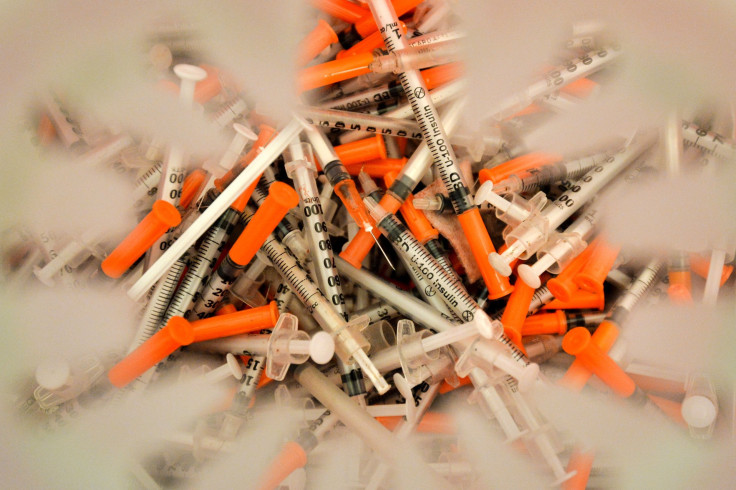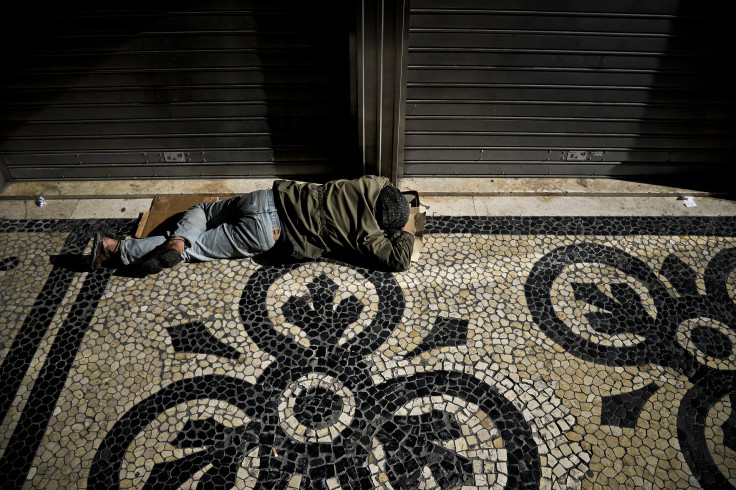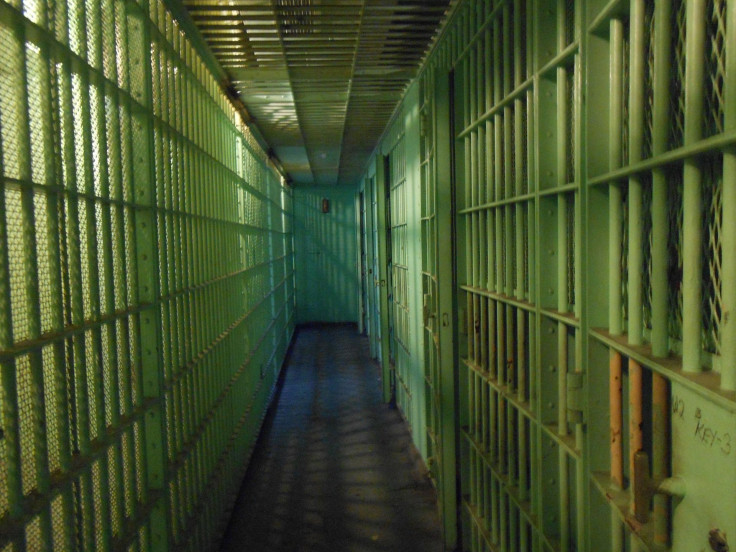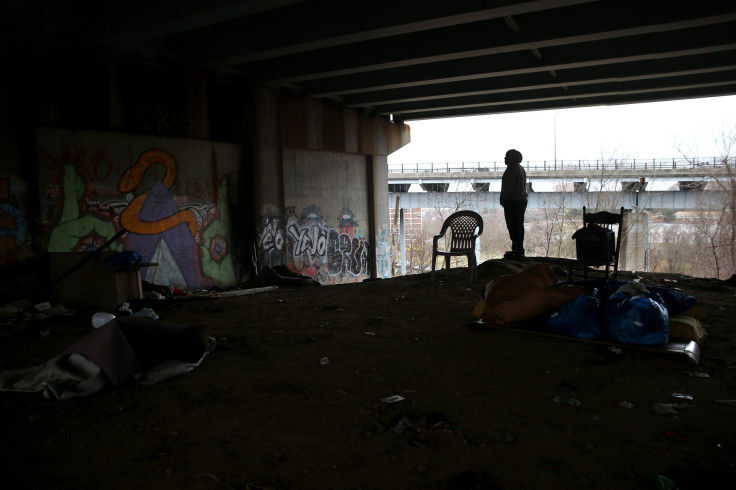Portugal’s Drug Experiment: Tackling Heroin Addiction By Decriminalizing Drugs And Focusing On Health

Lisbon is always sunny, and an intimately peaceful place. The city seems like a vacationer’s paradise: On any given day at noon, most people are lounging by the water, squinting into the bright horizon with a cigarette and an espresso or glass of wine in hand.
But just a few decades ago, Lisbon was a hub for illegal drug activity and a devastating heroin epidemic. HIV and hepatitis infections were rampant, and nearly everyone in the country was related to someone or knew someone addicted to heroin. It’s hard to see proof of that now, but Portugal’s history with drug abuse was certainly once troublesome.
In 2001, the Portuguese set up a program that tackled their widespread drug problem in a way that has garnered both respect and controversy in the global war on drugs. First, they decriminalized all drugs, even heroin and cocaine. Next, they began steering drug addicts away from prisons and punishment and towards doctors and healing. Since then, the number of heroin addicts, other drug addicts, drug-related overdose deaths, and HIV rates have all been in steady decline.
Despite getting all the credit, however, most experts can agree that decriminalization isn’t what solved Portugal’s heroin problem; rather, it was the renewed emphasis on health. The tide changed once Portuguese authorities decided to view drug addiction as a health and social issue, rather than a criminal problem.
‘Dealing With A Disease’
Dr. João Goulão sits in a board room at his office in Lisbon, facing me across a large round table. We drink espresso as our conversation rolls along leisurely, an advantage of interviewing leaders in small countries that enjoy a slower-paced life. Originally a family care doctor, Goulão spearheaded the Portuguese drug addiction program, and for the past 15 years has witnessed his small country transform from one with a heroin addict on every street corner, to one that can boast having successfully curbed high levels of drug abuse.
Ever since a report came out of the Cato Institute in 2009 touting the progress and success of the Portuguese system, the hype about decriminalization has grown, and Goulão’s office can’t keep track of all the media calls it receives on the matter. However, Goulão said it’s critical people understand that his country’s successes came not from decriminalization, but from treating drug addiction as a disease rather than a crime.
“If we are dealing with a disease, why put people in jail because they are sick? We were assuming that we were dealing with a chronic disease. You don’t put a diabetic in jail because he’s sick,” said Goulão, who feels Portugal’s struggles with heroin addiction must be viewed within the context of its recent history.
Many Portuguese people awoke from a near 50-year reign of dictatorship in the mid 70s, eager to experiment with the things that had been forbidden for so long — chief among them were drugs. Young men returning from the Portuguese Colonial War in Angola, Portuguese Guinea, and Mozambique brought back cannabis, and criminals ushered in heroin and cocaine.
“We were completely naive about drugs,” Goulão said. The country had been closed off and drugs had been controlled for decades, and suddenly the doors were wide open. “Everyone was trying stuff without the risk of consequences… Drug use and alcohol abuse was tolerated, or even incentivized.”
This sudden openness in society made way for a heroin epidemic. “While other societies in Europe had opportunities to learn how to deal with drugs, for us it was a very sudden process,” Goulão said. “It just spread silently in the beginning, without the big alarm in society. When we noticed it, we had a huge amount of people who were addicted mainly to heroin.”
By the 90s, nearly one percent of Portugal’s population had a heroin addiction. Soon, politicians began taking heed of the festering epidemic, which had become one of the country’s biggest problems. “It was the first concern of the Portuguese,” Goulão said. “If you asked people what their main concern for their children was, they would say drug addiction.”
Goulão, along with judges, psychiatrists, physicians, and social workers, was part of a team of experts summoned by the government to come up with a solution. The team was asked to produce a report on the Portuguese drug situation, then provide strategic proposals. By the end of 1998, they had come up with a unique, and some may say groundbreaking, approach: They proposed decriminalizing all drug use and enlisting new policies and programs to rehabilitate addicts and integrate them back into society. After a few years of discussion in Parliament, the program came into force in 2001.

The Portuguese System
Fueled by the idea that removing the stigma around both addiction and mental illness could help more addicts get the help they needed, Goulão and his team immediately set out to change the way drug addicts were perceived and treated by society. Goulão also knew that he had to improve the public’s trust in the police in order for the program to work. If drug addicts could recognize their problem and present themselves to the police rather than run away from them for fear of punishment, they’d have an easier time getting treatment, he reasoned.
Decriminalizing drugs didn’t mean letting drug use run rampant, or even that drugs are legal . The system works so that someone caught with drugs in a public place are escorted by police to a police station, where they will confiscate the drugs, weigh them, and determine whether the amount exceeds a certain threshold. If it does, the person might be suspected to be a dealer and sent to the criminal justice system. If not, the person is instead sent to the Ministry of Health.
“Drug use is still prohibited, but you won’t get penalized or sent to jail,” Goulão states. “The police can catch you using drugs, but you don’t get a criminal record, you don’t go to jail, you don’t have a criminal procedure.”
Instead, when caught drug users must present themselves at one of 18 commissions throughout Portugal, where a panel will discuss their drug problem (or lack thereof). The panel typically consists of one psychologist or doctor, a social worker, and a “technical support” team charged with developing an appropriate rehabilitative approach based on treatment.
Teenagers who are caught with weed during an experimental, youthful phase are often dismissed with barely a slap on the hand. Those deemed to be addicts are placed in rehab or community centers, where they’re given a certain amount of time to try to recover from their addiction. If they relapse and are caught with drugs again, they enter the same tribunal and are placed in rehab again if it’s considered worthwhile. They still receive no punishment or criminal record.
“The main goal [of the commission] is to evaluate what kind of needs the person has,” Goulão said. “If you’re addicted, I’ll invite you to the treatment center. Tomorrow at 10 o’clock you have an appointment. Most of the time, they accept. Around 80 percent of addicts who are confronted with this possibility accept.”
Fact-Checking The System: Is It Working?
In order to gauge the efficacy of Portugal’s program, I met with Brendan Hughes, principal scientific analyst at the European Monitoring Centre for Drugs and Drug Addiction (EMCDDA). Although the main offices of the EMCDDA coincidentally sit right along the water in Lisbon, the organization is involved in collecting data and monitoring drug use and laws across all of Europe. Because of this, Hughes has a bit more of an objective view of the program, and is able to compare it to programs in other European countries.
“The Cato Institute report exploded everything in 2009,” he said. “It basically said that Portugal had found the answer to the world’s problem. I like the Portuguese system, but come on guys, let’s be honest. It’s become a litmus test — people are either for it or against it without knowing much of the details.”
Hughes provided me with some information about the legal background of the program. Fact check number one: Decriminalization, in particular “is not a public health measure,” Hughes said. Many other European countries — like Luxembourg, Croatia, and Malta — decriminalized some or all drugs too, and they all did it for different reasons. Portugal decriminalized drugs because they had to find a way to help heroin addicts who were also creating an HIV epidemic. That required making addicts less fearful of police, and making police arms of outreach to addicts, rather than punishers.
“Within living memory [due to Portugal’s history of dictatorship], the police were not someone you go to for help,” Hughes said. “The police were to be feared. So this community of experts said if we’re going to get drug users, and we need to use the police, we need to get them to trust the police. So that was the logic behind decriminalization.”
Secondly, it’s difficult to prove whether anything is working or not working, even with all the data that’s been accumulated over the past 15 years. The point of the Portuguese system was to get more heroin users into treatment, which has happened. “Check — there are more heroin users in treatment, but that’s also the case in all of Europe,” Hughes said. “Is the HIV rate dropping? Yes, but the same in other countries. Deaths are decreasing here and in other countries. It’s difficult to say scientifically that the Portuguese system is wonderful and others are terrible.”
At the end of the day, however, even Hughes has to admit that the Portuguese system simply works. The best way to see that, he says, is by looking at the politics: The government has changed parties four times since the program came into effect in 2001, yet there is no discussion whatsoever on changing the drug system. There are no debates or heated controversies like there are in the U.S. “Nobody’s asked to go back to the old system,” Hughes said. “Other countries are still highly political about it. Any time anyone brings out the decriminalization word everyone starts fighting.” In Portugal, however, there’s “silence” on the matter.
Perhaps that’s best highlighted by a comment from Joao Figueira, chief inspector of Lisbon’s drug unit, when speaking with FOX News in 2012. Originally an opponent of the new program, Figueira ultimately changed his mind, like many other skeptics: “The level of conflicts on the street are reduced,” he said. “Drug-related robberies are reduced. And now the police are not the enemies of the consumers.”

Cure Vs. Punishment
Perhaps one of the highlights of Portugal’s drug system is steering drug addicts away from the isolation of jail cells, to the more open arms of doctors, psychologists, social workers, and therapeutic communities.
In an interview with VICE, Marc Lewis, a neuroscientist, professor of developmental psychology at Radboud University, and a recovered opioid addict himself, describes addiction as “a social issue that has disastrous medical consequences.” He adds: “Throwing people in jail and prohibition are responsible for a lot of the harm that comes with addiction. The prohibitions create this narrow passageway by which addicts have to squeeze themselves through, which drives them into crime, which breathes life into criminal organizations and cartels that get rich on the war on drugs.”
The U.S. in particular has experienced the consequences of a high number of jailed drug addicts, and prisoners with mental health issues. In 2010, the National Center on Addiction and Substance Abuse (CASA) released a report that found 65 percent of all 2.3 million inmates in American prisons had substance issues or had committed drug-related crimes — a total of some 1.5 million prisoners. In addition to that, the same report found that only 11 percent of that number received any treatment for their substance abuse problems.
“Drug addiction has become one of the many social problems that we've relegated to the criminal justice system,” wrote Kara Dansky, senior counsel at American Civil Liberties Union (ACLU). “But as with homelessness and mental illness, handcuffs and jail cells haven't made things better and have cost much more than the treatment and services that can.”
In Portugal, social costs have fallen since the program came into place, Hughes pointed out. 90 percent of Portugal’s anti-drug resources go towards treatment and prevention, and only 10 percent go to punishment. In other words, the health costs have gone up, though overall social costs have gone down, because the decrease in criminal justice costs offsets the increase in health costs.
What makes Portugal’s treatment program unique is that it’s run entirely by the Ministry of Health, with no input from the criminal justice system. “When you come from a health background, you want to cure someone,” Hughes said. “You understand that many times, let’s call it disease, their disease is chronic, there’s no single magic bullet and you expect to see them coming back again a few times. In the criminal justice model the primary ethos is punishment, not cure. And if you see somebody coming back to you, it’s because the punishment didn’t work, so the next time you’re gonna punish them harder.”

Can The U.S. Change Its Ways?
Meanwhile, in America, a heroin epidemic is growing. In recent years, heroin addiction and overdose deaths have skyrocketed, increasing by 286 percent from 2002 to 2013, according to a 2015 CDC report. While in the past heroin abuse was often rampant in low-income populations, the recent upticks are occurring across all demographics — particularly white, middle-class young people aged 18-25. Heroin-related overdose deaths have also increased significantly, from 0.7 per 100,000 people in 2002, to 2.7 per 100,000 people in 2013. Opioid abuse rates have also increased alongside heroin abuse.
Perhaps the biggest question lies in whether other countries, including the U.S., could follow in Portugal’s footsteps to tackle their major drug problems. One might argue that it’s impossible to compare the two, simply because Portugal is a much smaller country (a little over 10 million people total) than the U.S. (318 million people), and on that smaller scale the numbers of heroin addicts are much easier to manage.
Goulão can’t say whether other countries can adopt a similar system, but he does believe that Portugal has taken a step in the right direction — and that over time, others too will see the benefits of putting health above punishment. “I just got an invitation to go to Greece to share our experience,” he said. “The problem of drug addiction is not solved, but we have a very positive evolution. In some ways we have been inspiring some changes all over Europe. This movement from criminal justice to the health system is a trait that I believe is very inspiring to others.”
Published by Medicaldaily.com



























